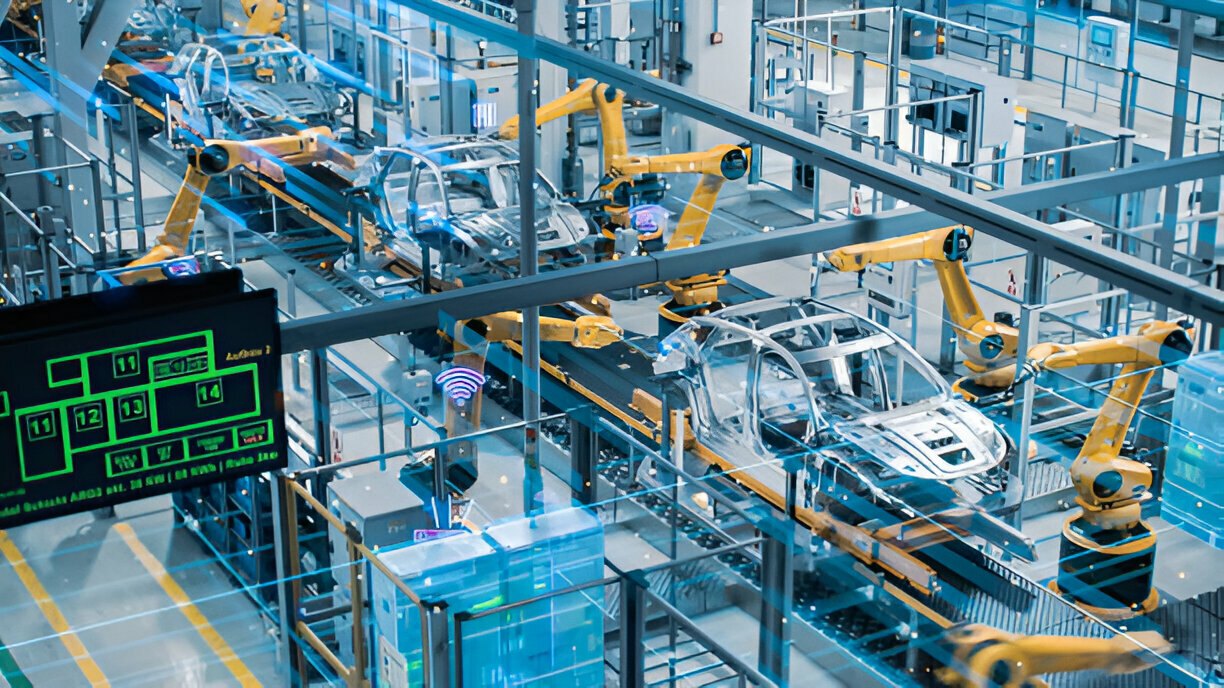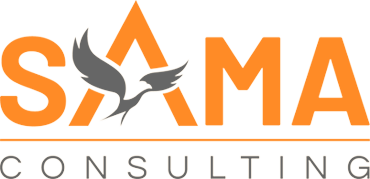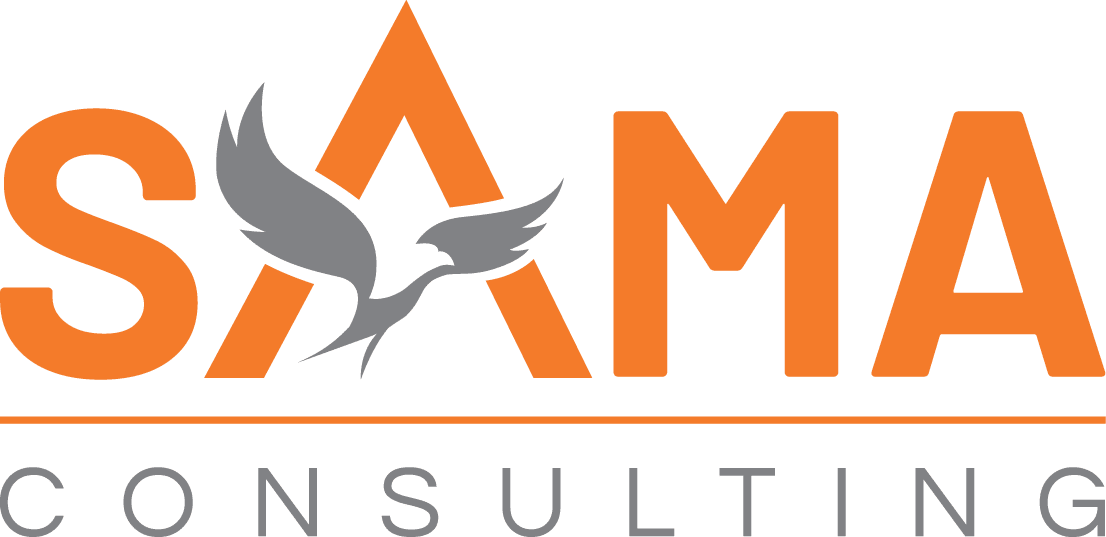
Finding the Right Fit: A Guide to Top Automotive ERPs
Choosing an Enterprise Resource Planning (ERP) system for an automotive company can be a daunting task. Unlike their vanilla counterparts, automotive ERPs cater to a world of intricate processes, ever-evolving consumer demands, and tight collaboration needs. This blog post, crafted by a team of independent automotive ERP consultants at SAMA Consulting, serves as your guide through the complex landscape, helping you select the perfect partner for your company’s success.
Understanding the Automotive ERP Landscape
The automotive industry thrives on a delicate balance. Consumer-centricity injects unpredictability into the equation, demanding constant innovation and product modifications. This, in turn, necessitates seamless collaboration and joint planning throughout the value chain, impacting everything from compliance to global trade processes. Even smaller players with limited global operations are not exempt from this intricate dance.
Beyond these common threads, distinct needs arise within the automotive ecosystem. While adherence to quality standards and OEM reporting remains crucial for all players, manufacturing and distribution processes, along with planning methodologies, create unique requirements. Consider, for instance, the contrasting operations of a plastic supplier and a chemical distributor. Even within the realm of manufacturing, a machine shop caters to a vastly different environment compared to an OEM specializing in school buses.
These distinct considerations necessitate a clear understanding of your company’s critical success factors. Selecting an ERP system specifically designed to support similar transactional volumes and operational processes becomes paramount. Opting for a generic solution might lead to overengineering, potentially causing adoption and implementation hurdles down the road.
Decoding the Selection Criteria
To guide you through the selection process, we’ve established a set of criteria to evaluate potential ERP systems:
- Definition of an Automotive Company: This encompasses the entire ecosystem, including OEMs, aftermarket service providers, manufacturers, and distributors, of all sizes.
- Market Share & Customer Base: A higher market share and customer base within the automotive industry translates to a higher ranking on our list.
- Ownership & Funding: A management team committed to the product roadmap for automotive companies receives a higher rating.
- Quality of Development: Cloud-native capabilities are a plus, ensuring scalability and agility.
- Community & Ecosystem: A larger community with a strong presence from automotive companies is desirable.
- Depth of Native Functionality: Publisher-owned, out-of-the-box functionality specifically designed for the automotive industry is highly valued.
- Product Documentation Quality: Poorly documented products pose implementation challenges and lower the ranking.
- Automotive Market Share Focus: A higher focus on automotive companies elevates the ERP system’s ranking.
- Ability to Support Diverse Business Models: The ability to cater to a wider range of business models within the automotive sector earns a higher score.
- Acquisition Strategy Alignment: An acquisition strategy aligned with automotive companies’ needs strengthens the system’s position.
- User Reviews: Extensive positive reviews from automotive companies are crucial.
Important Note: We differentiate between true ERPs and add-on products or best-of-breed solutions that integrate with core accounting platforms.
Unveiling the Top 10 Automotive ERP Systems in 2024
Having established the selection criteria, let’s delve into the top 10 contenders for your automotive ERP needs:
-
Infor LN
Tailored for large, global automotive companies with diverse discrete manufacturing needs, Infor LN excels in the Automotive ecosystem.
While process-centric operations for companies with diversified offerings might pose challenges, Infor LN remains versatile for most automotive-centric discrete and distribution needs. Its pre-integrated best-of-breed features and global trade compliance capabilities make it a strong contender.
Need help with your Infor LN implementation project?
Get in touch with us - we are 100% focussed on Infor.

QAD
Catering to mid-to-large global automotive companies, QAD functions seamlessly as a subsidiary-level system integrated with a corporate financial ledger or as the primary ERP for small businesses. Its unique combination of supply chain and ERP functionalities caters specifically to automotive needs.
Recent acquisitions suggest the potential for integrating HCM and MES capabilities, crucial for collaborative planning within the automotive landscape. QAD offers a user-friendly interface and strong global trade compliance features. However, its legacy technology stack might require consideration for future scalability.
-
Plex
With a laser focus on automotive companies, Plex excels as a subsidiary-level solution boasting robust shop-floor-centric capabilities. Its pre-integrated PLM and CAD features, native skills and scheduling functionalities, and recent updates for the Ford ecosystem make it a strong choice. However, its limitations lie in handling diverse business models like project manufacturing.
-
Epicor Kinetic
Ideal for SMB automotive companies heavily invested in shop floor activities, Epicor Kinetic excels in managing schedules and quality processes. However, companies relying on the ERP system for centralized quality management and scheduling might find limitations. Its unique BOM structures cater well to established manufacturing processes and revision control.
Complex inventories with intricate material-to-operation correlations and large programs with WBS-centric processes are well-suited for Epicor Kinetic. While it offers combined distribution and MRP functionalities, seamless field service capabilities might require additional integration effort compared to some competitors.
-
DELMIAWorks (IQMS)
Focusing on discrete manufacturing with a strong emphasis on the automotive sector and mid-market companies, DELMIAWorks (IQMS) offers comprehensive out-of-the-box capabilities for automotive companies, including MMOG/LE, APQP, gauge R&R, and PPAP compliance. This makes it particularly advantageous for those in the Honda ecosystem.
However, its user interface might feel dated compared to some competitors, and the community surrounding the solution might be less vibrant, potentially impacting talent acquisition and consulting costs. DELMIAWorks caters well to companies with fairly static business models centered around plastics within the automotive space. It could also be a suitable subsidiary solution for large enterprises with independent operations and minimal collaboration needs.
-
SAP S/4 HANA
Intended for large, global, publicly traded organizations with robust internal IT capabilities and a need for cross-entity collaboration, SAP S/4 HANA offers a unified system for streamlined operations. However, its last-mile functionalities might lack depth in automotive-specific features like PPAP compliance, FMEA analysis, or recall management compared to more specialized solutions.
Similar to Oracle Cloud ERP and Microsoft Dynamics 365 F&O, SAP S/4 HANA might be suitable for companies requiring support for complex business models but possessing the internal IT expertise to implement intricate automotive functionalities on top of the core solution. Alternatively, it could be used as a corporate financial ledger alongside another operational solution for subsidiary-level needs.
Need help with your ERP evaluation process?
We will provide a detailed, unbiased evaluation by assessing your business needs, shortlisting vendors, analyzing cost benefits, planning implementation, and mitigating risks.

Microsoft Dynamics 365 Finance & Operations
Microsoft Dynamics 365 F&O caters to mid-market large automotive companies with diverse operations encompassing various manufacturing processes, from discrete manufacturing for automotive parts to process manufacturing for activities like plastic extrusion or chemical divisions.
Companies with complex field service operations, extensive collaboration needs, and trade compliance requirements find this solution particularly advantageous. While smaller, automotive-focused solutions might struggle with such diverse needs, Microsoft Dynamics 365 F&O caters well to private equity-owned holding companies navigating M&A cycles with unpredictable future business models.
However, its last-mile automotive functionalities might require custom development or dedicated add-ons, demanding internal IT proficiency and expertise in implementing intricate automotive compliance frameworks.
-
Oracle Cloud ERP
Oracle Cloud ERP targets large global automotive companies, boasting deep capabilities in integrating customer feedback with R&D data. While excelling in mixed-mode manufacturing and international supply chain aspects, it might encounter limitations with specific automotive functionalities.
This solution is suitable for companies adopting a best-of-breed or decoupled architecture, where Oracle Cloud ERP acts as the corporate financial ledger, while other systems handle shop floor and specific manufacturing needs.
Only larger enterprises with robust IT departments are likely to successfully develop last-mile functionalities on top of the vanilla platform. Despite these considerations, Oracle Cloud ERP could be the best fit as a corporate financial ledger for large automotive companies using another system with deeper capabilities at the subsidiary level. Additionally, it could be a suitable choice for private equity and holding companies prioritizing standardization across their portfolio.
-
IFS
While it supports various business models, its performance might not match the specialized features offered by competitors like Plex or QAD, particularly in automotive program management. Additionally, out-of-the-box automotive functionalities like MMOG/LE, ITAF, and recall management might be less comprehensive compared to other solutions.
IFS caters well to automotive companies primarily engaged in field services and those seeking best-of-breed field service capabilities. However, due to its limited focus on diverse business models and challenges with extensibility, it ranks lower on our list this year.
Conclusion: Selecting the Right Fit for Your Automotive Journey
The automotive industry thrives on constant evolution. To stay ahead of the curve, selecting an ERP system that adapts to your specific needs is paramount. Avoid generic solutions that might require extensive customization, leading to implementation delays and higher costs.
Our list, compiled by a team of independent ERP consultants, prioritizes automotive-specific functionalities to ensure a smooth and successful digital transformation journey.
Beyond the Top 10
The ERP landscape is vast, and these ten options represent just a fraction of the available solutions. If none of these perfectly align with your requirements, consider exploring niche players catering to specific industry verticals within the automotive ecosystem.
Need help with your Infor LN implementation project?
Get in touch with us - we are 100% focussed on Infor.

